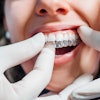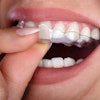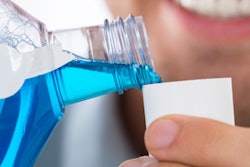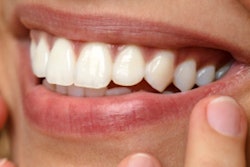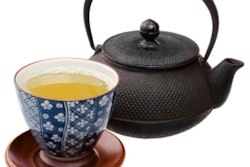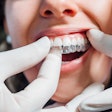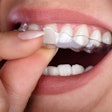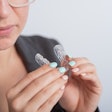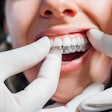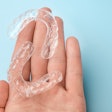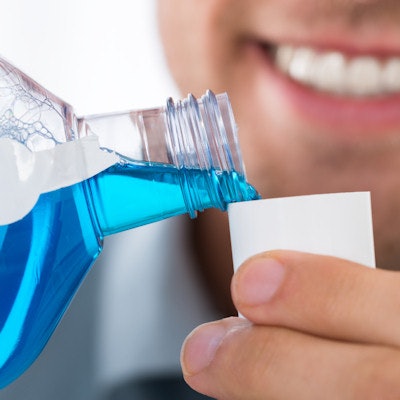
A plant used in traditional Indian medicine may also benefit orthodontic and dental patients. A new study found that neem mouthwash rivaled chlorhexidine at reducing three oral health indicators for patients with braces.
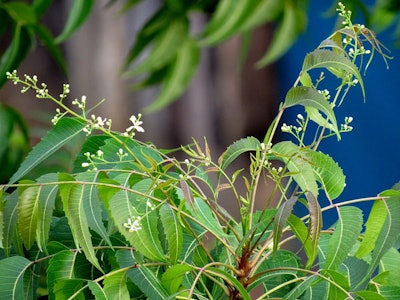 Leaves of an Azadirachta indica, better known as neem, tree. Image courtesy of Malcolm Manners.
Leaves of an Azadirachta indica, better known as neem, tree. Image courtesy of Malcolm Manners.Neem is a tree native to India that has been used in the Ayurveda system of medicine for centuries. Traditionally, it has helped people with bleeding gums, halitosis, mouth ulcers, and decay, and recent scientific studies have found that neem can significantly reduce plaque and gingivitis.
Therefore, researchers were curious if neem could also improve oral hygiene indicators for people with fixed orthodontic appliances. Their findings were published in the Journal of Contemporary Dental Practice (December 2017, Vol. 18:12, pp. 1112-1116).
"Extracts of neem inhibit the growth of [Streptococcus mutans] by their antioxidant, anti-inflammatory, and antimicrobial properties; hence, they are used for the treatment of periodontitis," wrote the authors, led by A. Nishad, MDS, a professor at the Noorul Islam College of Dental Science in Thiruvananthapuram, India.
Traditional solution in a modern setting
Because mouthwash can reduce harmful bacteria, it has been suggested as an adjunct therapy for people with braces and other fixed orthodontic appliances who sometimes have difficulty with brushing and flossing. However, chlorhexidine, the gold standard of mouthwashes, has several drawbacks, including tooth discoloration.
The researchers decided to see if plant-based neem mouthwash could be an effective alternative for these patients. Neem mouthwashes are available in the U.S. from Amazon, the Vitamin Shoppe, and other retailers under various brand names.
The present study was conducted to assess the impact of mouthwashes on antibacterial activity on individuals with fixed orthodontic appliances, the authors wrote.
The researchers began their study by recruiting 60 young adult patients from an orthodontic clinic in India. All the study participants had no recent antibiotic or antibacterial mouthwash use, and they had similar plaque levels, gingival levels, and S. mutans counts at the beginning of the study.
The patients were broken up into three groups:
- 20 patients rinsed with 5 mL of chlorhexidine mouthwash two times per day after meals
- 20 patients rinsed with 5 mL of neem mouthwash two times per day after meals
- 20 patients rinsed with 5 mL of distilled water two times per day after meals
After one month, patients using the chlorhexidine and neem mouthwashes had significantly improved plaque index scores, gingival index scores, and S. mutans counts compared with those who rinsed with water. Chlorhexidine performed better than neem in all three metrics, but the difference between the two was only significant for gingival index scores.
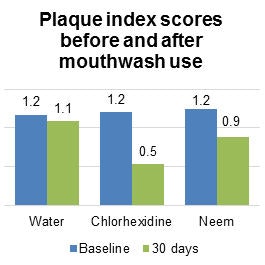
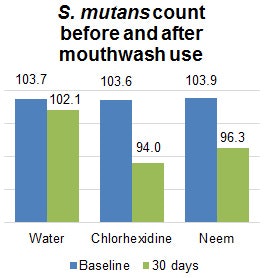
Suitable for orthodontia
The authors cautioned that one study may not be enough to validate neem's efficacy for people with fixed orthodontic appliances, and they hope future research verifies its antiplaque and antigingivitis properties.
Nevertheless, neem appears to be a suitable mouthwash for those with braces. It also has the advantages of being generally cheaper and better tasting than chlorhexidine, and it doesn't stain teeth, they noted.
"Neem mouthwash can be used as an alternative to [chlorhexidine] as both mouthwashes show a significant reduction in [S. mutans] level," the authors wrote. "It also suggests that incidence of tooth discoloration or unpleasant taste is less common with neem than with [chlorhexidine]. A larger long-term clinical trial is needed to explore the antibacterial efficacy of the mouthwashes."


